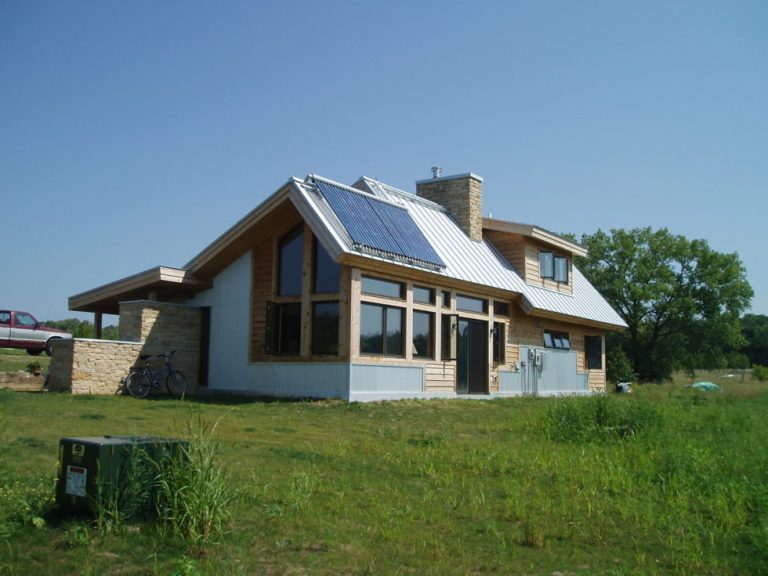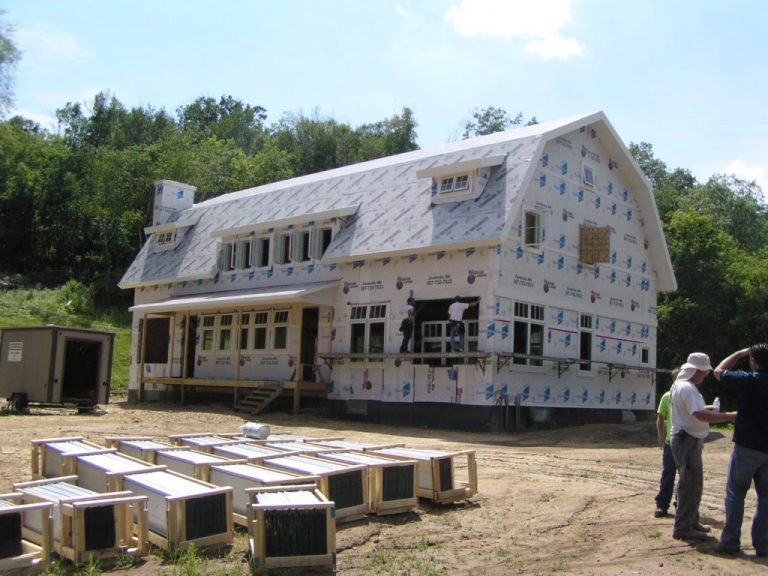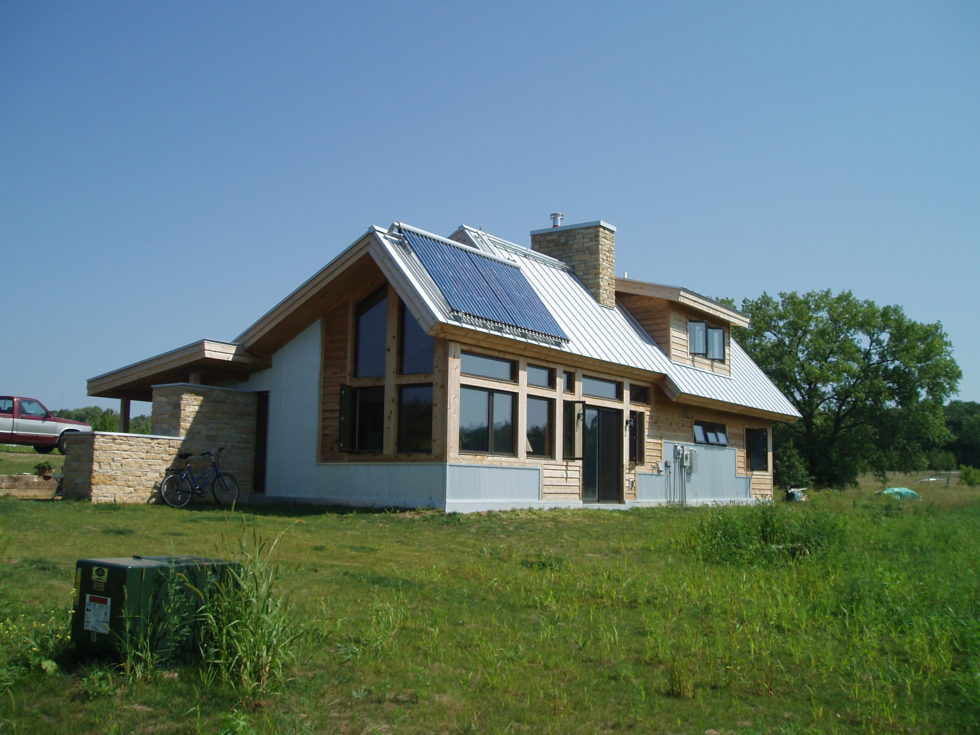Spring has nearly sprung, meaning most of our heating, ventilation and air conditioning (HVACs) will switch from pushing out heat to pushing out conditioned air. While the steady, low hum of HVACs is a familiar cadence that tends to fade into the background, the systems are an integral component of modern buildings. Not only do they provide a comfortable living and working environment during the coldest and hottest months of the year, but they can also contribute to healthier structures.
When savvy building professionals incorporate structural insulated panels, or SIPs, into residential and commercial applications, benefits abound for the buildings’ HVAC systems. Paired with 15 times more airtight SIPs, the HVAC equipment can be smaller, more energy-efficient and bring about better indoor air quality (IAQ).
Structural insulated panels can reduce the required size of HVAC equipment
With less air leakage than traditionally-framed homes and whole wall R-values, structural insulated paneled homes and businesses don’t need large HVAC systems. HVAC equipment is expensive, and saving here can help projects stay on budget. Downsized systems also take up less space, simplifying jobsite logistics.
Structures are more energy-efficient with structural insulated panels
 Thanks to structural insulated panels, the smaller HVAC equipment can further impact a building’s overall energy performance. Unlike over-sized units, downsized systems aren’t as encumbered by stop-and-go cycles, and they can ease off for optimum efficiency. On the jobsite, this can lead to a more productive drying cycle for concrete slabs and keep energy costs lower should the HVAC equipment need to remain on for moisture control. Homeowners and business owners will also rejoice at lower heating and cooling costs made possible by the combination of structural insulated panels and a more compact HVAC system, and their satisfaction will likely result in strong referrals.
Thanks to structural insulated panels, the smaller HVAC equipment can further impact a building’s overall energy performance. Unlike over-sized units, downsized systems aren’t as encumbered by stop-and-go cycles, and they can ease off for optimum efficiency. On the jobsite, this can lead to a more productive drying cycle for concrete slabs and keep energy costs lower should the HVAC equipment need to remain on for moisture control. Homeowners and business owners will also rejoice at lower heating and cooling costs made possible by the combination of structural insulated panels and a more compact HVAC system, and their satisfaction will likely result in strong referrals.
Structural insulated panels mean breathing easier
What’s more, the controlled mechanical ventilation required by structural insulated panels affects the very air occupants breathe. According to the Structural Insulated Panel Association, “Mechanical ventilation has been proven effective in mitigating fumes from combustion appliances, radon, formaldehyde and even pollutants such as excess humidity and tobacco smoke.” In application, the super-insulated panels provide few gaps for outside air and pollutants to enter in. The HVAC’s exhaust system then takes any contaminated indoor air and replaces it with filtered fresh air from outside the building. This dehumidification process is key in reducing mold, dust mites and other allergens.
For builders specifically, better IAQ yields short-term benefits of healthier construction conditions, as gasses are vented outside rather than circulated in confined spaces. As for the long-term, the Occupational Safety and Health Administration (OSHA) does have standards about workplace ventilation and some air contaminants that directly relate to IAQ problems. IAQ guidance varies by state, so review OHSA’s additional resources to ensure your structural insulated paneled commercial structure and HVAC are in compliance.
 Green-minded homebuilders can also use SIPs and downsized equipment to help earn the EPA’s Indoor airPLUS label. This new construction label can crucially “address customer concerns about indoor air quality; reduce potential call-backs and liability related to mold and moisture problems; and earn a trusted government-backed label for green construction techniques.” Never were there more incentives to build healthier structures today for a better tomorrow.
Green-minded homebuilders can also use SIPs and downsized equipment to help earn the EPA’s Indoor airPLUS label. This new construction label can crucially “address customer concerns about indoor air quality; reduce potential call-backs and liability related to mold and moisture problems; and earn a trusted government-backed label for green construction techniques.” Never were there more incentives to build healthier structures today for a better tomorrow.
Next steps
Ready to roll up your sleeves and start building with structural insulated panels and smaller HVAC systems? Be sure to engage an HVAC contractor at the beginning to properly size the equipment – taking into account the size of the home, orientation of the building, wall R-value and more, advises Pro Builder. You’ll also want to contact a structural insulated panel expert before the project gets off the ground for maximum ROI.


